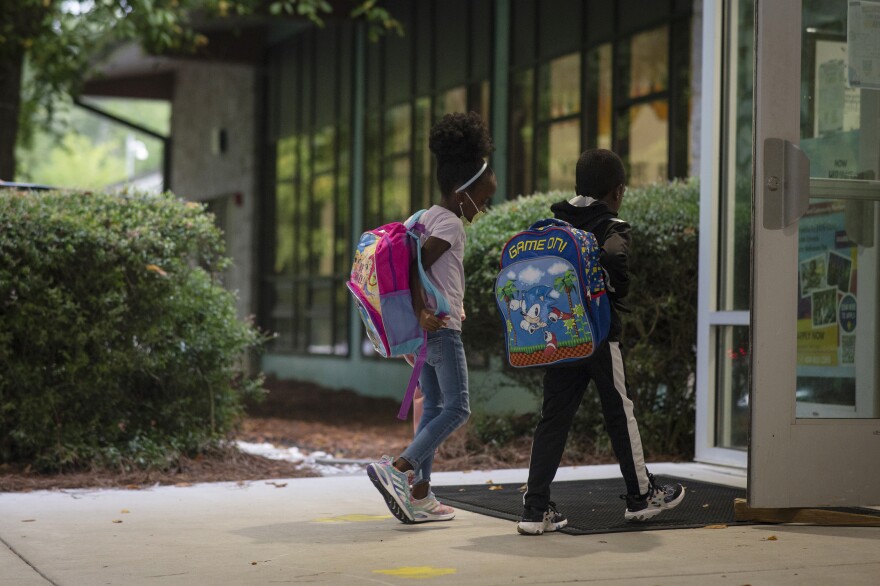Math and reading scores for students across the country are down following years of disrupted learning during the pandemic. On Monday, the National Assessment of Educational Progress (NAEP), also known as the Nation's Report Card, released a full report for the first time since 2019; the results show a slight dip in reading scores and a drop in math.
U.S. Secretary of Education Miguel Cardona called the results "appalling and unacceptable" in a call with reporters. "This is a moment of truth for education," he said. "How we respond to this will determine not only our recovery, but our nation's standing in the world."
NAEP assesses reading and math proficiency for students in grades four and eight. The assessment is given every two years, but the pandemic delayed the 2021 test until 2022.
When you compare the most recent results to past years, it paints a stark picture:
In 2022, the average fourth-grade math score decreased by 5 points to its lowest level since 2005. The average eighth-grade math score decreased by 8 points to its lowest level since 2003.
Given the disruptions of the pandemic, the drop in math was expected, said Peggy Carr, commissioner for the National Center for Education Statistics (NCES), which administers the Nation's Report Card .
"We really need the teachers to teach math," she said. "Reading, on the other hand, is something that parents and communities are more comfortable helping students with."
While reading scores stayed more steady – dipping only about 3 points in both grade levels compared to 2019 – reading proficiency has been trending down in the past couple cycles.
"Nothing [in the math and reading scores] should be surprising to anyone," says Karyn Lewis, who researches K-12 assessments at the Center for School and Student Progress at NWEA, a nonprofit that works in standardized testing.
"This corroborates what we have seen in our research and what we've seen from peers that are doing similar work."
She hopes states will use this new data to target areas for future investment, rather than dwell on the losses.
"I fear that this just encourages us to keep looking backwards when I would really like to see people continue to look forward."
She says it's time to "quit fighting battles back from 2020" and instead put that energy toward helping students recover.






